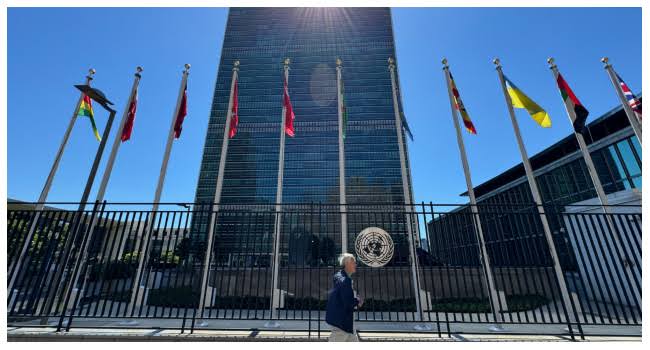The United Nations Department of Economic and Social Affairs (UN DESA) has cautioned that the global economy is teetering at a delicate crossroads due to intensifying trade disputes and increasing uncertainty around policy decisions.
In a report released on Thursday, UN DESA revealed that inflation risks are being worsened by tariff-induced price increases, placing economies heavily reliant on trade in a particularly vulnerable position.
The report noted that escalating tariffs and unpredictable trade policies are threatening to unravel international supply chains, inflate production costs, and stall crucial investments—factors that collectively dim the outlook for global economic growth.
The slowdown is being felt worldwide, impacting both advanced and emerging economies. In the United States, for instance, growth is anticipated to slow considerably, as heightened tariffs and uncertain policy environments are expected to dampen both consumer spending and private sector investment.
Similarly, countries like Brazil and Mexico are seeing their growth forecasts downgraded.
China’s growth is projected to ease to 4.6 percent in 2025, a decline from the 5 percent recorded in 2024. This drop reflects waning consumer confidence, challenges in export-driven manufacturing, and persistent problems in the property sector.
As of early 2025, inflation had surpassed pre-COVID levels in nearly two-thirds of all countries, with over 20 developing nations grappling with inflation rates in the double digits—despite a general decline in global headline inflation between 2023 and 2024.
Food inflation remains particularly severe in regions like Africa and parts of South and Western Asia, averaging over six percent and placing a disproportionate burden on low-income households.
The combination of rising protectionism and climate-related disruptions continues to push prices higher, underscoring the urgent need for globally coordinated policy responses to stabilize inflation and shield vulnerable groups.
“The impact of tariff hikes could be especially damaging for fragile developing economies,” said Li Junhua, the UN Under-Secretary-General for Economic and Social Affairs.
With central banks walking a tightrope between curbing inflation and supporting flagging growth, many governments—especially in the developing world—face tight budget constraints, making it harder to implement effective measures to counter the downturn.
According to the UN report, the current economic strain threatens progress on job creation, poverty reduction, and efforts to reduce inequality across many lower-income nations.

